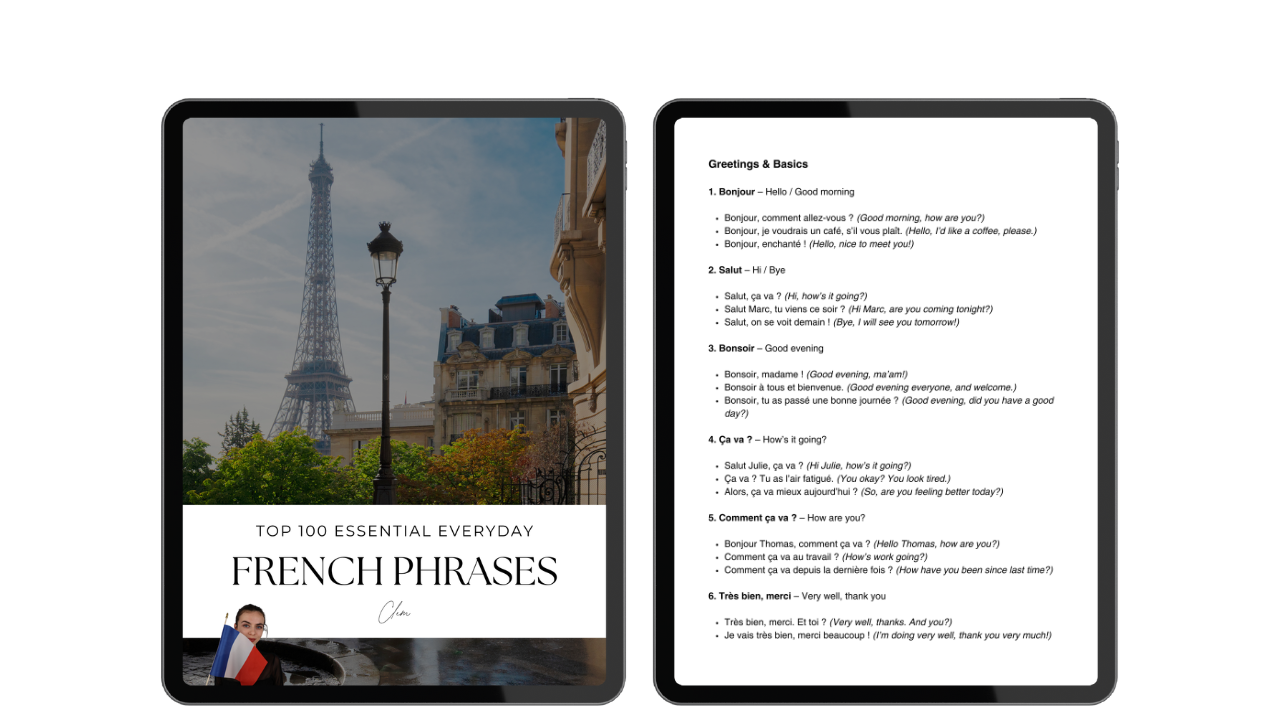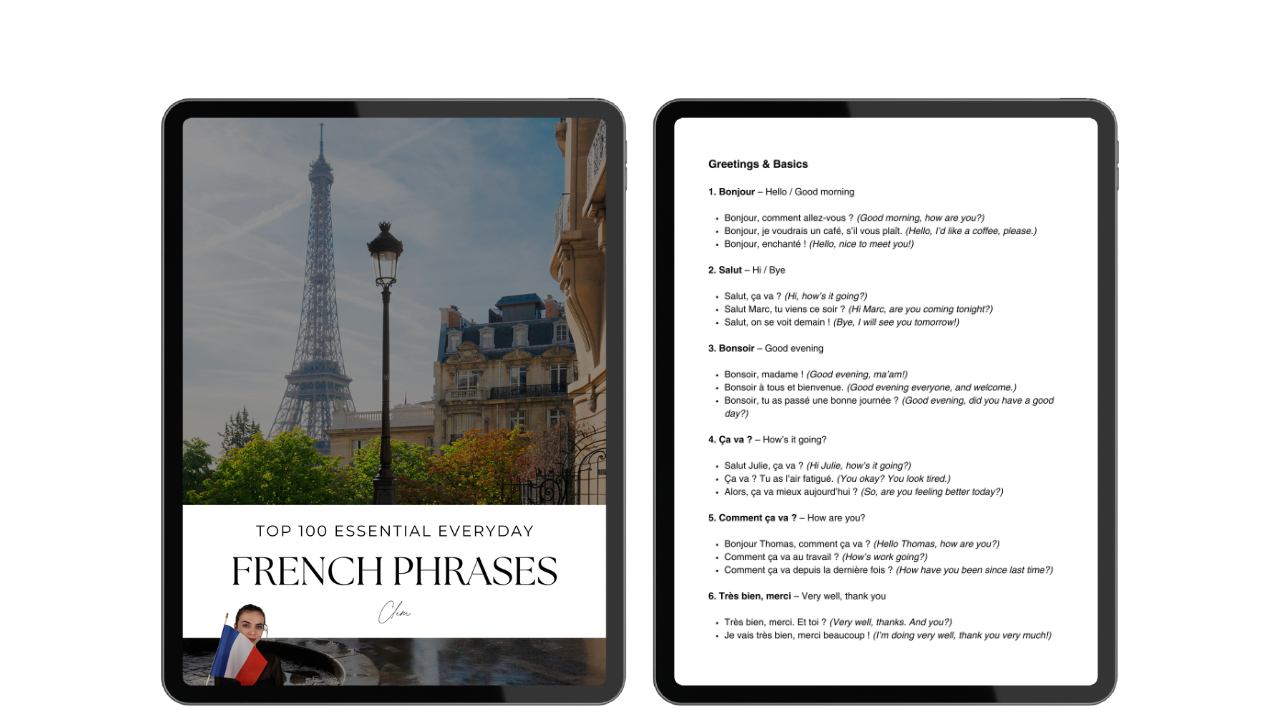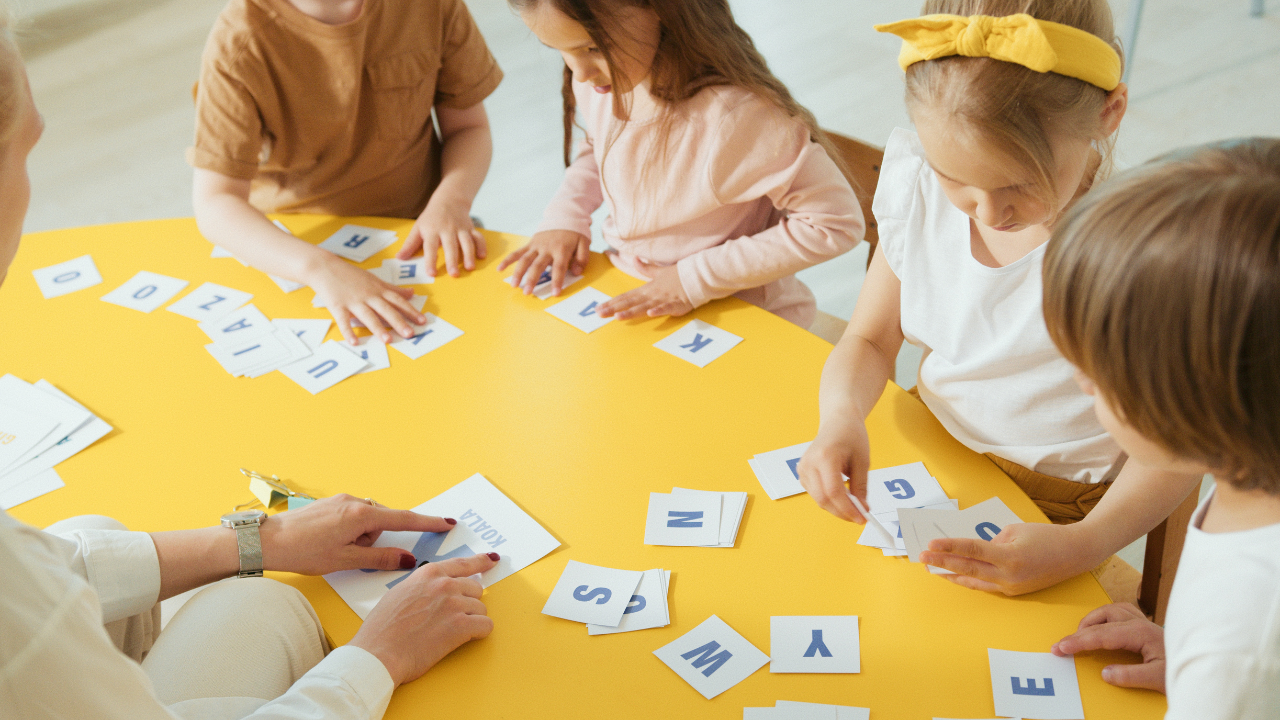
100 Essential French Words to Learn First: Build Your Vocabulary Fast
May 16, 2025Learning the French language opens doors to travel, culture, career opportunities, and meaningful human connections. But before you can enjoy a Parisian café chat or navigate your way through Montreal, you need to start with the basics.
Are you a complete beginner, planning a trip to France, brushing up on high school French, or diving into language learning for fun? This list is for you. Mastering these essential terms will help you understand spoken French faster and respond with confidence.
In this post, we’ll share over 100 foundational French words, grouped by topic and usage, along with example sentences and practical learning tips.
Commonly used French words
When learning a new language, some words appear more often than others. Focusing on the most commonly used vocabulary will allow you to quickly start understanding and engaging in conversations. In this section, we’ll dive into the most common French words that are essential for everyday communication.
Top 10 everyday French terms
These are some of the most frequent words you'll encounter in daily French conversations. By mastering these basic French words, you'll be able to navigate basic interactions and start building your confidence in the language.
- Merci (Thank you)
Merci beaucoup! (Thank you very much!) - Oui (Yes)
Oui, je comprends. (Yes, I understand.) - Non (No)
Non, je ne sais pas. (No, I don’t know.) - S'il vous plaît (Please)
Un café, s'il vous plaît. (A coffee, please.) - Excusez-moi (Excuse me)
Excusez-moi, où sont les toilettes? (Excuse me, where are the toilets?) - Au revoir (Goodbye)
Au revoir et bonne journée! (Goodbye and have a nice day!) - Je ne sais pas (I don’t know)
Je ne sais pas quoi dire. (I don't know what to say.) - Je suis désolé(e) (I’m sorry)
Je suis désolé(e), je ne comprends pas. (I'm sorry, I don't understand.) - Peut-être (Maybe)
Peut-être demain. (Maybe tomorrow.) - D'accord (OK)
D'accord, allons-y. (Okay, let’s go.)
Would you like to expand your French vocabulary effortlessly? Download your free guide to essential French phrases.
10 must-know French verbs
Verbs are the backbone of any language. These essential French verbs will help you express actions and ideas and get you closer to fluent communication in French.
- Être (To be)
Je suis (être) fatigué aujourd’hui. (I am tired today.) - Avoir (To have)
Elle a (avoir) un chat noir. (She has a black cat.) - Aller (To go)
Nous allons (aller) au marché. (We are going to the market.) - Faire (To do/make)
Je fais (faire) la cuisine ce soir. (I’m cooking tonight.) - Vouloir (To want)
Il veut (vouloir) apprendre le français. (He wants to learn French.) - Savoir (To know)
Je sais (savoir) parler un peu espagnol. (I know how to speak a little Spanish.) - Voir (To see)
Tu vois (voir) ce que je veux dire ? (Do you see what I mean?) - Venir (To come)
Ils viennent (venir) demain matin. (They are coming tomorrow morning.) - Parler (To speak)
Parlez-vous (parler) anglais ? (Do you speak English?) - Prendre (To take)
Je prends (prendre) un café tous les matins. (I take a coffee every morning.)
Also read: The Secret History Behind Common French Words.
10 foundational French adjectives
Adjectives give you the power to describe and add detail to your speech. These essential adjectives are often used to describe people, objects, emotions, and more.
- Grand(e) (Big)
C’est une grande maison. (It’s a big house.) - Petit(e) (Small)
Un petit café, s’il vous plaît. (A small coffee, please.) - Bon(ne) (Good)
C’est un bon film. (It’s a good movie.) - Mauvais(e) (Bad)
Il fait mauvais temps. (The weather is bad.) - Beau / Belle (Beautiful)
Elle est très belle. (She is very beautiful.) - Heureux / Heureuse (Happy)
Je suis heureux. (I am happy.) - Fatigué(e) (Tired)
Je suis fatigué aujourd’hui. (I’m tired today.) - Chaud(e) (Hot)
Le café est chaud. (The coffee is hot.) - Froid(e) (Cold)
L’eau est froide. (The water is cold.) - Vieux / Vieille (Old)
Mon grand-père est vieux. (My grandfather is old.)
10 French linking words and phrases
Linking words and phrases connect ideas and allow your speech to flow more naturally. Whether you’re giving directions, explaining something, or storytelling, these connectors are crucial for expressing complex thoughts clearly.
- Et (And)
J’aime le café et le thé. (I like coffee and tea.) - Mais (But)
Il est gentil mais timide. (He is kind but shy.) - Ou (Or)
Tu veux du pain ou du riz ? (Do you want bread or rice?) - Parce que (Because)
Je pars parce que je suis fatigué. (I’m leaving because I’m tired.) - Donc (So)
Il pleut, donc je reste ici. (It’s raining, so I’m staying in.) - Puis (Then)
J’ai mangé, puis je suis sorti. (I ate, then I went out.) - Aussi (Also)
Elle est aussi étudiante. (She is also a student.) - Pourtant (However)
Il a essayé, pourtant il a échoué. (He tried, however he failed.) - Alors (Therefore)
Il est malade, alors il ne vient pas. (He’s sick, therefore he’s not coming.) - En fait (In fact)
En fait, je suis déjà allé là-bas. (In fact, I’ve already been there.)
Useful everyday French words and phrases
In this section, we’ll cover a variety of useful French words and phrases you’ll encounter in everyday situations. These terms will help you communicate effectively in a wide range of scenarios.
Common French greetings and expressions

Greetings are the first step in making a good impression. Learn the essential French greetings and expressions to use when meeting someone, and you'll immediately sound like a local.
- Salut (Hello)
- Bonjour (Good morning)
- Bonsoir (Good evening)
- Bonne nuit (Good night)
- À bientôt (See you soon)
- Comment ça va ? (How are you?)
- Ça va bien (I’m fine)
- Je vous en prie (You’re welcome)
- De rien (It was nothing)
- Comment tu t’appelles ? (What is your name?)
- Je m'appelle... (My name is...)
French words for food and dining
Food is a central part of French culture, and knowing how to navigate menus and food-related vocabulary will make dining in France an enjoyable experience. Here are the key terms to remember when eating out or grocery shopping:
- Pain (Bread)
- Viande (Meat)
- Poisson (Fish)
- Eau (Water)
- Vin (Wine)
- Fromage (Cheese)
- Manger (Eat)
- Petit déjeuner (Breakfast)
- Déjeuner (Lunch)
- Dîner (Dinner)
- Restaurant (Restaurant)
Numbers and counting in French
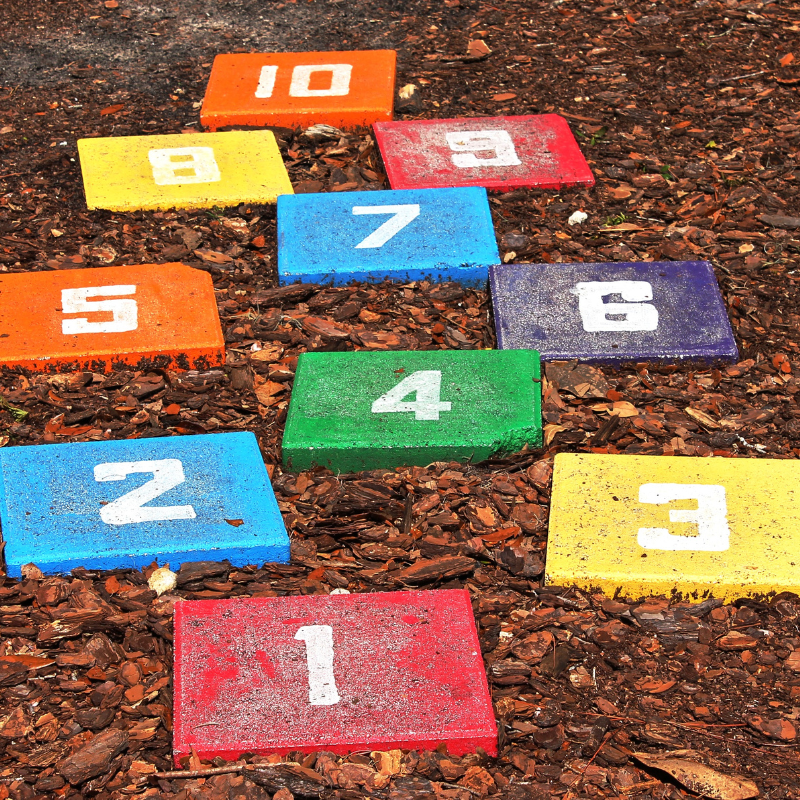
Numbers are fundamental to many everyday situations, from shopping to traveling. Understanding how to count in French will help you manage money, tell time, and navigate various tasks.
- Un (One)
- Deux (Two)
- Trois (Three)
- Quatre (Four)
- Cinq (Five)
- Six (Six)
- Sept (Seven)
- Huit (Eight)
- Neuf (Nine)
- Dix (Ten)
- Onze (Eleven)
- Douze (Twelve)
- Treize (Thirteen)
- Quatorze (Fourteen)
- Quinze (Fifteen)
- Seize (Sixteen)
- Dix-sept (Seventeen)
- Dix-huit (Eighteen)
- Dix-neuf (Nineteen)
- Vingt (Twenty)
Days and months in French
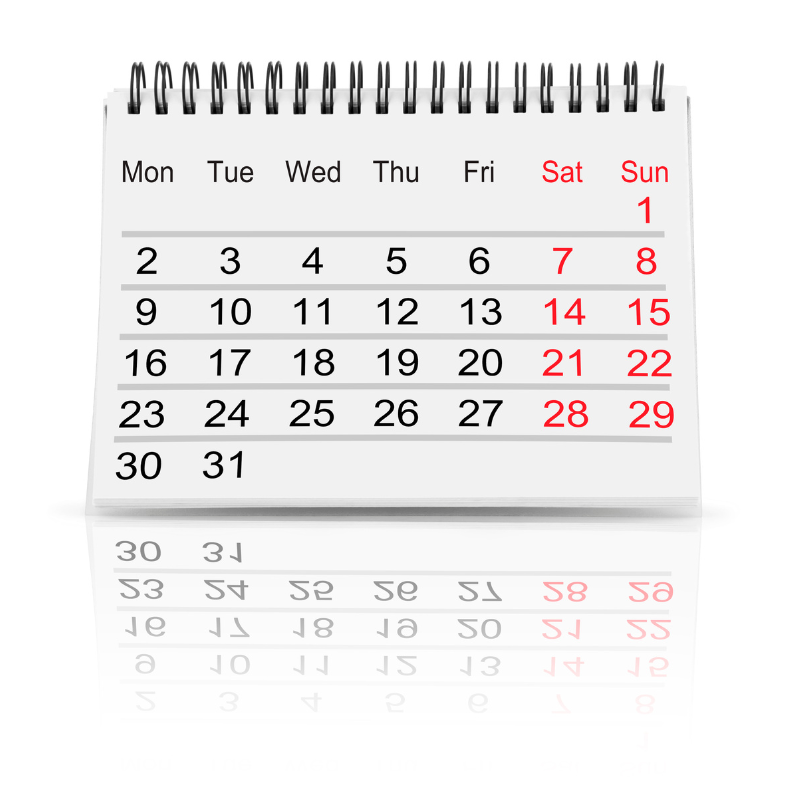
Mastering the days of the week and months of the year will help you plan activities and appointments.
- Lundi (Monday)
- Mardi (Tuesday)
- Mercredi (Wednesday)
- Jeudi (Thursday)
- Vendredi (Friday)
- Samedi (Saturday)
- Dimanche (Sunday)
- Janvier (January)
- Février (February)
- Mars (March)
- Avril (April)
- Mai (May)
- Juin (June)
- Juillet (July)
- Août (August)
- Septembre (September)
- Octobre (October)
- Novembre (November)
- Décembre (December)
Weather and seasons in French
Talking about the weather is a common conversation starter. Learn the French vocabulary for different weather conditions and seasons to help you discuss the climate, both in casual conversation and when planning outdoor activities.
- Il fait chaud (It’s hot)
- Il fait froid (It’s cold)
- Printemps (Spring)
- Été (Summer)
- Hiver (Winter)
- Pluie (Rain)
French words for asking questions
Asking questions is a critical part of communication. In this section, we’ll focus on the key words and phrases you need to inquire about people, places, and things in French.
- Qui (Who)
Qui est-ce? (Who is it?) - Quoi (What)
C’est quoi? (What is it?) - Où (Where)
Où puis-je acheter de la nourriture française? (Where can I buy French food?) - Pourquoi (Why)
Pourquoi tu pleures? (Why are you crying?) - Comment (How)
Comment tu vas? (How are you doing?)
How to ask for directions in French
Learn the most common French phrases that will help you get around with ease.
- Où est...? (Where is...?)
- À gauche (On the left)
- À droite (On the right)
- Tout droit (Straight ahead)
- Parlez-vous anglais ? (Do you speak English?)
Transportation-related terms in French
Navigating transportation in a foreign country can be challenging, but knowing the right vocabulary can make it much easier. These French terms are vital when you're traveling by bus, train, taxi, or even on foot.
- Train (Train)
- Bus (Bus)
- Aéroport (Airport)
- Billet (Ticket)
Accommodation-related terms in French
Whether you're checking into a hotel or renting an apartment, understanding accommodation-related vocabulary will make your stay in a French-speaking country much more comfortable.
- Hôtel (Hotel)
- Chambre (Room)
- Réservation (Reservation)
- Clé (Key)
Words for shopping and buying in French
These words will help you confidently navigate French markets, boutiques, and online shopping:
- Prix (Price)
- Magasin (Store)
- Solde (Sale)
- Argent (Money)
People and relationships in French
Talking about people and relationships is an essential part of any language. These French words will help you engage in meaningful conversations:
- Homme (Man)
- Femme (Woman)
- Garçon (Boy)
- Fille (Girl)
- Ami(e) (Friend)
- Marié(e) (Married)
- Célibataire (Single)
- Enfants (Children)
- Famille (Family)
French vocabulary for professions and occupations
Knowing the vocabulary for different professions is useful when discussing careers or interacting in a professional setting. In this section, we cover terms that will help you talk about jobs and work life in French.
- Médecin (Doctor)
- Ingénieur (Engineer)
- Professeur (Teacher)
- Étudiant (Student)
Places and geography in French
Understanding French place names and geography is essential, especially when traveling or discussing locations. This vocabulary will help you identify countries, cities, landmarks, and more.
- Ville (City)
- Pays (Country)
- Plage (Beach)
- Montagne (Mountain)
Animals and nature in French
Learning about animals and nature in French opens up a whole new set of vocabulary, from wildlife to plants. The following words will help you talk about your surroundings, nature hikes, and even pets.
- Chien (Dog)
- Chat (Cat)
- Arbre (Tree)
- Fleur (Flower)
- Rivière (River)
- Route (Road)
Furniture and home-related French terms
These terms will help you express yourself clearly when talking about your home environment:
- Table (Table)
- Chaise (Chair)
- Lit (Bed)
- Porte (Door)
French words for describing people
Describing others is a key part of conversation. These adjectives will help you talk about people's appearance, personality, and emotions in French:
- Gentil(le) (Kind)
- Drôle (Funny)
- Intelligent(e) (Smart)
- Grand(e) (Tall)
You may also like: What’s Up With All Those Accent Marks in French?
Strategies for mastering everyday French vocabulary
In this section, we’ll share some practical strategies to help you remember and actively use your new basic French vocabulary.
With these tips, you'll be able to expand your vocabulary more effectively and have basic French conversations in no time.
- Use spaced repetition tools (like Anki or Quizlet): These tools show you words just before you're likely to forget them, helping commit them to long-term memory.
- Label items around your home: This helps you quickly remember the French names of everyday items, increasing your useful French vocabulary.
- Watch French TV shows or YouTube channels with subtitles: This can help you pick up basic French phrases used in everyday conversation.
- Speak slowly: This helps with proper enunciation and gives your brain time to process the new structures and vocabulary, reducing frustration and mistakes.
- Practice speaking aloud, even to yourself: This helps activate passive vocabulary and builds your speaking confidence.
- Join language exchange apps: These apps allow you to practice with native French speakers.
- Keep a daily vocab journal: Write down 5–10 new words you learned every day, along with their meanings. This reinforces what you’ve learned and gives you a personalized vocabulary list to reference over time.
Takeaway: Start your French language learning journey with LFWC
Mastering French starts with learning high-frequency terms. Start with the 100+ beginner French words and phrases discussed above, and you’ll be surprised how quickly you can hold a basic conversation. With a few minutes of focused study each day, you’ll build confidence and comprehension faster than you think.
However, having expert guidance can accelerate your learning, help you avoid common mistakes, and keep you motivated. Structured support can make all the difference. This is where Learn French With Clémence comes in!
We’ve helped thousands of learners transform their French, moving them from novices to beginners to speaking clearly, confidently, and naturally in just 4 months.
Ready to learn French the smart way? Start with a Learn French with Clémence FREE sample lesson today!
FAQs
This section answers some of the most frequently asked questions about building your French vocabulary.
How many French words do I need to know for basic conversations?
About 500–1,000 words are enough to carry on simple conversations and handle travel or daily life situations.
Is 5,000 words enough to become fluent in French?
Yes, 5,000 words will give you strong conversational fluency and allow you to read newspapers, follow TV shows, and engage in deeper discussions.
How many French words should I learn to be considered fluent?
Fluency typically begins around 3,000–5,000 words, with advanced fluency closer to 10,000+ words.
How many words are typically needed to reach the B2 level in French?
You’ll need a vocabulary of around 4,000 words to reach B2 level (upper intermediate).
What are some of the first words taught in beginner French lessons?
Common first words include greetings (bonjour), numbers, basic verbs (être, avoir), and everyday French nouns (maison, école, pain).
What key topics should beginners focus on when starting to learn French?
Focus on greetings, numbers, verbs, family, food, directions, and question words to cover essential daily interactions.
Where can I find reliable sources to build my French vocabulary?
LFWC’s (Learn French With Clémence) free sample lesson and eBooks are invaluable in building French vocabulary. You may also try apps like Duolingo, Babbel, Memrise, and platforms like TV5Monde, FluentU, or French podcasts for learners.

